Is the Rohingya abuse exposing Aung San Suu Kyi - By Fawaz Turki, Al Arabiya
We know about the agonies of Aleppo and have all been exposed, by the media almost daily, to the suffering of its people.
But why is it that the plight faced by the Muslim minority in Myanmar seems to pass largely unnoticed by the international community, causing relatively little outrage - or perhaps not as much outrage as the issue warrants – at the atrocities committed by security forces, including gang rape, torture and murder committed against a people described by human rights organizations as “the most persecuted in the world?”
Though a minority, numbering just over one million in a Buddhist nation of 54 million, the Rohingya have lived in Myanmar since the 16th century, concentrated in the northern state of Rakhine to the West of the Bay of Bengal. Yet to this day, they continue to be denied citizenship and to be subjected to all manner of discrimination. Last week, a United Nations official accused the central government - whose incumbent State Councilor Aung San Suu Kyi is a Nobel Peace Prize winner - of ethnic cleansing.
John McKissick, head of the United Nations refugee agency UNHCR in neighboring Bangladesh (which Myanmar shares a 120-mile border with), addressed reporters after thousands of refugees poured into the country, with others feared drowned after a boat sank in the River Naaf during a bid to flee the violence that by last week had killed more than 80 people and displaced about 30,000. He spoke, reportedly breathlessly, of security forces “killing men, shooting them, slaughtering children, raping women, burning and looting houses, forcing these people to cross the river into Bangladesh.”
Bangladesh, however, does not want “these people.” In recent days, authorities began to turn refugees back. The logic here, it would appear, is that to open the border would play into the hands of the Myanmar government, further encouraging it to continue to push its Muslim minority out, with no expectation of return.
At one point, McKissick told reporters: “Difficult as it is for the Bangladesh government to absorb large numbers, it seems to me there’s no other choice, because the only other choice is death and suffering.” Yet at another, he said in an interview with the BBC that keeping the border open “would further encourage the government of Myanmar to continue the atrocities and push [the Rohingya] out until they have achieved their ultimate goal of the ethnic cleansing of the Muslim minority.”
Talk about a people caught between a rock and a hard place.
Meanwhile, Ms Suu Kyi is being exposed, along with her cohorts in the National League for Democracy, as a “champion of democracy” only in name, not in practice. The warning last week about the dire lot of the Rohingya people by Adama Dieng, the UN special adviser on the prevention of genocide, reflected an astonishing reversal of global opinion of Myanmar’s 71-year-old putative human rights activist and Nobel Peace Prize winner, whose government is now facing fierce criticism for refusing to allow international aid workers and journalists to gain access to Rakhine in order to verify claims of atrocities there.
Ethnic cleansing, the systematic and forced removal of ethnic groups from a given territory by a more powerful group with the intention of making it racially homogeneous, is, very simply, a war crime. Never mind that one act of ethnic cleansing may differ from another in kind or in degree. The forcible deportation, expulsion or eviction - in short the permanent exile - of someone from his or her homeland, based on that person’s ethnicity is defined under international law as a crime against humanity.
But sadly, this racist practice is not unique to any one people or to any one era. The 19th century was replete with it - from the poetically resonant name given the Trail of Tears in 1820, when President Andrew Jackson ordered the forced removal of native American tribes from their ancestral homelands in the southeastern United States to an area west of the Mississipi River, where they suffered severely from exposure, disease and starvation, with more than 4,000 dying while on route; to the expulsion, in the years that followed 1821, of a large number of Muslims from southeastern Europe as Bulgaria, Greece and Serbia gained their independence from the Ottoman Empire.
As was the 20th century equally replete, from the ethnic cleansing of Palestinians by Jewish gangs in 1948, especially in the twin cities of Lydda and Ramleh; to the atrocities committed by the Serbs against “Bosniaks, or Bosnian” Muslims, between 1992 and 1995.
This brings us today to the 250,000 Rohingyas languishing in refugee camps in not altogether hospitable host states, along with roughly 100,000 others living in camps for internally displaced persons which they are not allowed to leave.
So, Ms Suu Kyi, I have a question for you: Isn’t it true that in a democracy, of which you’re a champion, we are all brothers and sisters, irrespective of our ethnic identity, the color of our skin, and the nature of our national background? Judging by where you stand on the issue, you appear to think otherwise.
Latest News
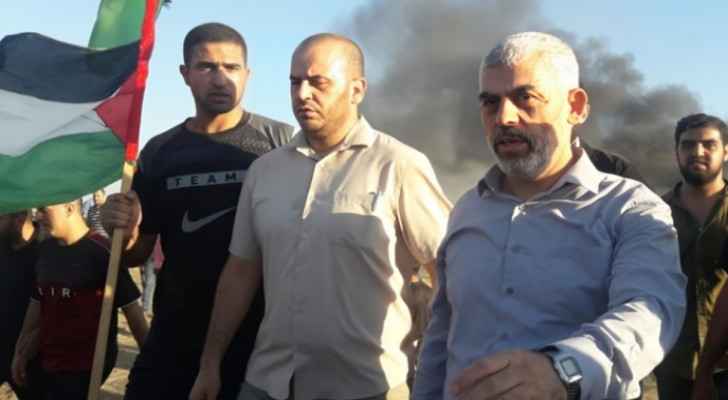 'Sinwar Above Ground': Hamas official's revelation shocks Israeli Occupation
'Sinwar Above Ground': Hamas official's revelation shocks Israeli Occupation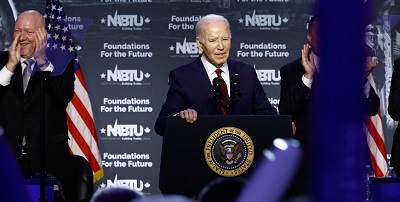 US president signs bill to provide new aid for Ukraine
US president signs bill to provide new aid for Ukraine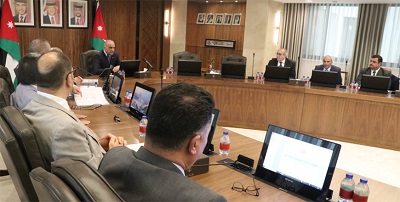 Prime minister directs government to support IEC ahead of upcoming elections
Prime minister directs government to support IEC ahead of upcoming elections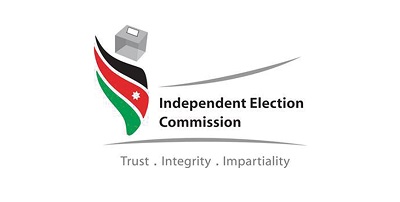 Parliamentary elections for 20th Lower House to be held on September 10 – IEC
Parliamentary elections for 20th Lower House to be held on September 10 – IEC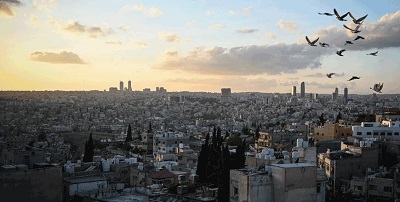 Amman Chamber of Commerce says GDP grows by 4.4% in 2023
Amman Chamber of Commerce says GDP grows by 4.4% in 2023
Most Read Articles
- More than 100 arrested at US university pro-Palestinian protests
- Irish foreign minister visits Palestinian refugee camp in Amman, vows support to UNRWA
- King, French president discuss regional developments
- Senior Hamas official says movement is “awaiting response” in ceasefire negotiations
- Jordan remembers Queen Zein
- Ahead of feared Rafah invasion, Palestinians mourn bombardment dead
- US says downed Houthi anti-ship missile, four drones
- JAF carries out six more airdrops of aid into Gaza
- Cassation Court upholds over 3-year sentence for drug dealer
- Jordan completes human rights review before council’s evaluation Jordan completes human rights review before council’s evaluation